“It’s not about you.” – Rick Warren
This quote, from the first chapter of Rick Warren’s best selling book The Purpose Driven Life, comes as a shocking revelation to much of society. But those of us who use the Bible as the fundamental guide for social conduct find that we are to “let no one seek his own, but each one the other’s well being.” And also, “let each of us please his neighbor for his good, leading to edification (building up).”
Building community is one of our missions at our Civil War Balls, and one of the ways we do this is to encourage each participant to treat everyone in attendance with kind manners and proper etiquette.
Victorian Balls were social events where service, respect and honor were practiced. They were held so that guests could have the opportunity to dance and talk with a variety of people. In the 1800’s there would have been people from various ranks of life in attendance – Colonels and tradesmen, old and young, beautiful and not-as-beautiful. But from the perspective of social responsibility, it didn’t matter. At the ball, then and now, a gentleman has the responsibility to dance with a variety of ladies, and the ladies have the responsibility to accept if asked.
So how do we begin? When entering a ballroom, a well-bred person smiles and bows or curtseys in greeting. They address the guests by respectful titles such as Sir or Madam, and they use words such as please and thank you.
It is a gentleman's duty and privilege to ask the ladies to dance. When a gentleman invites a lady to dance, he does so with words such as, “Will you honor me with your hand for this dance?” or “Will you give me the pleasure of dancing with you?” It’s often helpful if the man has been introduced to the lady, so extend a kindness to the people you know at the dance and introduce them to someone new. The gentleman then offers his arm to the lady to escort her to the floor, and upon the conclusion of the dance, takes her back to her seat.
A lady should not refuse an offer of a dance unless she has already accepted the offer from another gentleman or if she is planning on sitting out that particular dance. But if she refuses one gentleman, she must not accept the offer of another.
When dancing, smile at your partner and the couple dancing across from you.
In the Victorian Era, it was very ill-mannered to dance with the same partner more than once, even if the lady was the gentleman’s wife or one he had escorted to the ball. At our events, we know that married couples enjoy dancing together, but we encourage everyone to mix it up as much as possible.
And at some of our balls, as was true in the Civil War Era as well, there are more ladies than gentlemen present. We encourage the ladies to don a Civil War hat and play the part of a gentleman for a few dances so that everyone who wants to can dance.
At our historical Civil War Balls, we are portraying a very gracious, higher class group of ladies and gentlemen. It is important to behave with manners, respect, grace and gratitude appropriate to gentility. And please remember that everyone at the ball has the social duty to mingle and ensure that everyone in attendance has a good time. We are to “look out not only for our own interests, but also for the interests of others.”
Victorian Era Dance Calling, Music, Living History, Special Events, Education and Life
Up-a-do Unlimited Music Patterns
You can play music by just matching colors and letters! It is easy! Find out how at www.UpadoUnlimited.com
Tutoring Services and More!
In addition to dance, there is English, math, science, history and more. And sometimes, you need a little help. For information, go to Up and Over Educational Services.
Host an Event
Dancing at a HIstory Ball


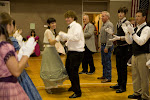

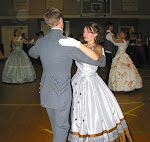
Dancing at a Living History Event



Dancing in Edna Valley

The Newby Family

History Ball
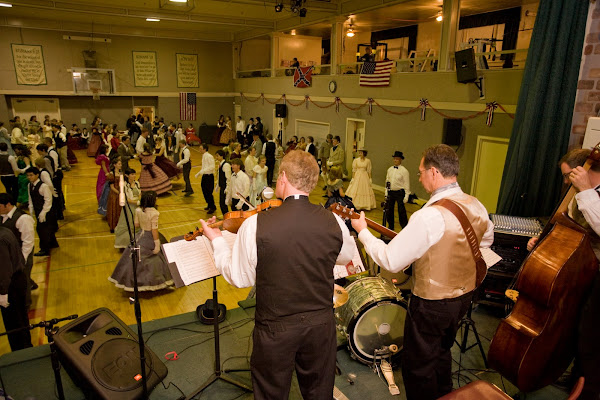
Liberty Hill Players: Kelly Powers, Terry Newby and Kirk MacLane
Dancing The Virginia Reel
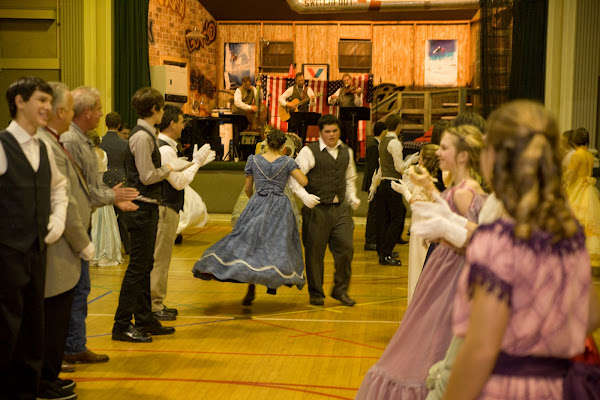
Civil War Ball photos by Dennis Swanson at www.studio101west.com
Fresno Reenactment

Playing period music in camp
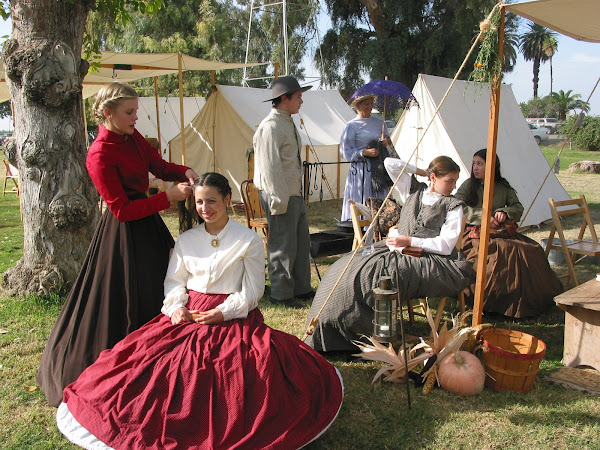
Preparing for the day
Youtube videos of past History Balls
Profile
The first time Debra Newby can remember participating in a group dance was when she learned to square dance during PE in 5th grade… and she was hooked. She continued to dance through Jr. High, college and beyond. During her college years, she worked as a Park and Recreation Leader and taught square dancing to elementary school-aged students. After receiving her degree in zoology and chemistry, she earned her teacher's credential and began teaching science in public high schools. She gave that up to stay home with her three young children and went on to direct choreography and drama for local children’s choirs. She currently enjoys Civil War Reenacting with her family and teaching and calling Victorian Era social group dances for school groups, casual events and Grand Balls.
No comments:
Post a Comment